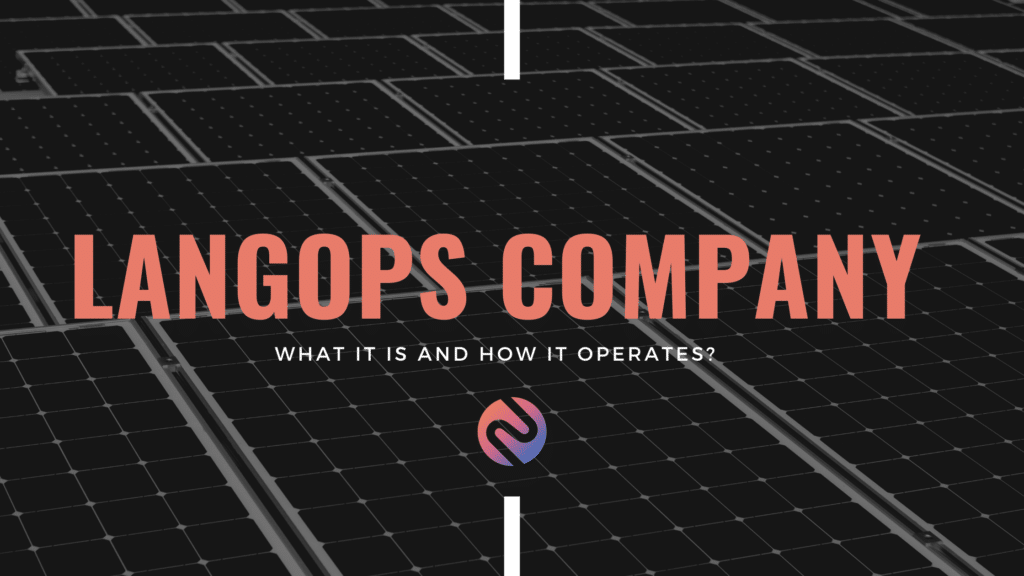From the well-known DevOps in software development to FinOps in finance and RevOps in sales, these operational frameworks have been pivotal in enhancing efficiency and productivity. Among these, Language Operations, or LangOps, is a rather new concept, but the way a LangOps company operates has proven itself a contender to be considered an evolved version of translation and localization.

LangOps represents a more holistic approach to managing and optimizing language services, moving beyond traditional translation and localization methods. Above all, a LangOps company tries to facilitate all communication within an organization and reduce communication related friction, irrespective of languages involved. This article delves into what constitutes a LangOps company and the core principles that underpin its operations.
Technology Agnosticism: How a LangOps Company Reaches True Flexibility
LangOps companies embody technology agnosticism, meaning they are not wedded to a single technological solution. They employ a dynamic tech stack which is adaptable and customizable to suit the diverse needs of their partners. This also means that a LangOps company can be a pillow between translation buyers and the huge pressure of translation technology developers that race to lock buyers in buying their software. This profound flexibility allows LangOps companies to slingshot their partners forward and help them avoid getting locked in multi-year contracts with software developers that would not be flexible and end up impairing their multilingual journey down the road.
Language Agnosticism Enables a Universal Approach
Nowadays, the ability for companies to operate and co-operate across various languages is paramount. LangOps companies develop solutions and frameworks that are effective regardless of the languages they service. This language-agnostic approach applies tools and solutions that ensure consistency and precision regardless of language combination. It’s about building a universal model that can be applied globally, breaking down language barriers and fostering clearer real-time communication.
Transparent, Controlled, and Scalable Translation
The translation process within a LangOps company is a paradigm shift from traditional methods. This approach advocates for a transparent, controlled, and scalable approach, which means that the entire process, from inception to delivery, is visible to clients. This level of transparency allows for real-time monitoring, immediate adjustments, and a customization that can cater to any scale – from small projects to extensive, global operations. This approach not only builds trust but also ensures that the localization process is not a set-in-stone procedure. That is where boutique translation companies can come in the picture as the ultimate adjusted operation providers.
LangOps Company Helps Making Data-Driven Translation Solutions
Data-driven decision-making is at the heart of LangOps companies. Prioritizing the collection and analysis of data from existing content to then create translation strategy is paramount. By integrating robust analytics and testing, it facilitates decision-making that is not just based on intuition but on solid, empirical evidence. This emphasis on data ensures that each localization effort is strategic, targeted, and impactful, maximizing the return on investment for companies that decide to partner with a LangOps company.
A LangOps Company Implements AI In a Safe and Strategic Way
LangOps companies tend to prioritize artificial intelligence solutions when solving problems. However, this is done with a sense of responsibility and strategic purpose. The LangOps way prioritizes an AI-first approach in areas where it enhances safety, responsibility, and effectiveness. This could mean using AI for creating initial translation products, which are then refined by human experts, or employing machine learning algorithms to predict and analyze market trends. The goal is to harness AI in a way that it generates data and complements human expertise.
Human Expertise Remains an Irreplaceable Asset
Despite their strong emphasis on technology and Artificial Intelligence, a LangOps company understands the irreplaceable value of human expertise. It recognizes that the subtleties of language, cultural nuances, and creative thinking are domains where human professionals excel. Therefore, while repetitive and data-intensive tasks are automated for efficiency, the more nuanced aspects of language services are entrusted to skilled linguists and experts. This balance ensures that the quality of the output is not just technically accurate but also culturally and contextually relevant.
A Synergistic Approach for the Future
A LangOps company, such as Native Localization represents a synergistic blend of human creativity and technological advancement. It stands as a testament to how embracing a flexible tech stack, adopting a language-agnostic approach, maintaining transparency in operations, being data-driven, responsibly using AI, and valuing human expertise can create a robust and efficient operational model. The principles of LangOps provide a comprehensive framework for delivering language services that are not just efficient and scalable but also respect the human expertise as well as future oriented. As businesses continue to expand their reach across borders, LangOps companies are poised to play a pivotal role in bridging language gaps internally and externally, as well as fostering understanding for an interconnected global community.

